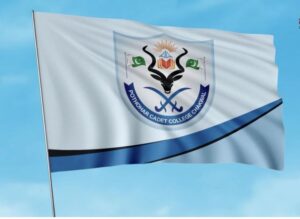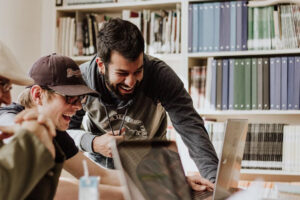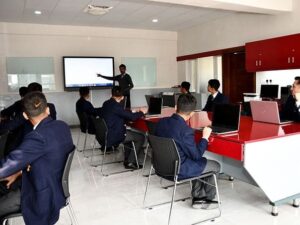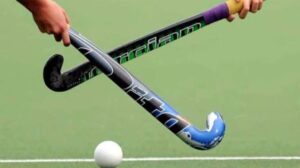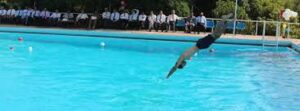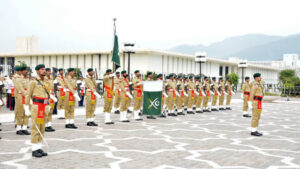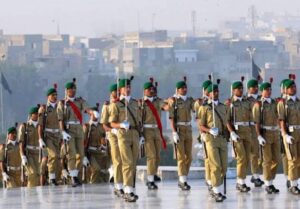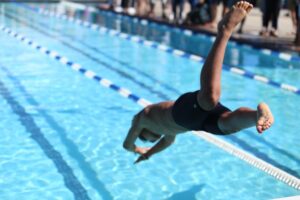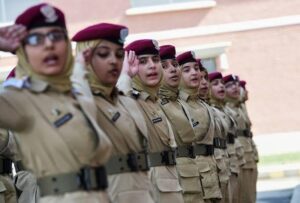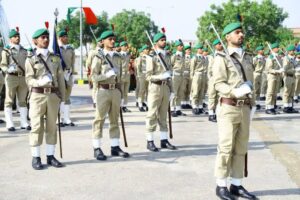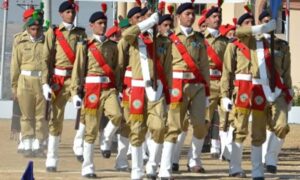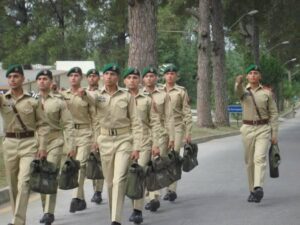College Of Conduct
Purpose
Pothohar Cadet College is committed to the provision of high quality education, training and support services to all our students. The College activities promote a supportive learning environment:-
- Where staff and students have good working relationship.
- Where staff and students are treated with courtesy and respect.
- Where students are clear about their entitlements and responsibilities. To help achieve this, PCC has established Students’ Code of Conduct (hereafter referred to as The Code). The Code applies to all students attending PCC:-
- On any of the College houses.
- Residing in any College residence.
- On other College activities such as sports, field trips, overnight and residential trips etc.
- The Code is available to all staff and students via College website. The Code is also issued in the shape of handbook to the students at the time of admission.
- Pothohar Cadet College embraces a culture of mutual respect between staff and students. We actively promote a supportive learning environment where everyone is treated with courtesy and respect, and where everyone is clear about ones entitlements and responsibilities. In the likely event of a student failing to behave in a responsible manner for the benefit of themselves, their fellow students and the staff of the college, PCC has disciplinary procedures. Below are examples of unacceptable behavior which will be regarded as breach of The Code. These fall into the categories of Misconduct, Serious Misconduct and Gross Misconduct. Examples of these include:-
Misconduct
Following acts are listed in misconduct:-
- Defacing, destroying or littering College property.
- Unauthorized gambling on College premises.
- Breaches of College parking regulations.
- Breaches of no-smoking practices.
- Anti-social behavior (for example spitting, use of abusive language etc.)
- Using mobile phones in class or on College activities (unless specifically permitted)
- Walking on college roads and in academic block with hands in pockets.
Serious Misconduct
Serious misconduct includes:-
- Breaches of College health and safety regulations.
- Failure to disclose name and other relevant details, where a member of staff Requests this information.
- Unauthorized entry to College premises.
- Theft or attempted theft of personal or College property.
- Willful disruption of College activity.
- Willful damage or threat to damage College property or facilities.
- Possessing or being under the influence of controlled or banned substances (e.g. alcohol and drugs) on College premises or College activities.
Encouraging others to act out with the Code.
- All
- Campus
- Academics
- Cadet Life
- Community
Gross Misconduct
Grass misconduct includes:-
- Selling or distributing controlled or banned substances(e.g. alcohol and drugs) on the College premises or during external College activities)
- All forms of dishonesty, including knowingly furnishing false information to the College.
- Forgery and altercation or unauthorized use of College documents with intent to defraud or misrepresent oneself or others.
- Physically or other abuse, or threat to abuse, bullying or harassment of any person on College premises or on College external activities.
- Carrying an offensive weapon.
- Intimidation of witness, and /or other as a result of disciplinary procedure being investigated.
- Video or audio recording or photographing of staff, students or College activities without explicit consent.
ICT Facilities
a. Students will be required to agree to their acceptance of the Code as it applies to the use of IT facilities when they first login to the network.
b. IT facilities must be used in a manner that is legal, ethical, appropriate to the College aims, and not to the detriment of others or the College.
c. Students must adhere to current legislation covering areas such as copyright, computer misuse and data protection.
d. Students will be held accountable for all network activities associated with their network account. It is therefore important to keep all passwords secret and to logoff before leaving a PC.
e. The College monitors IT network usage to ensure appropriate use.
f. Failure to adhere to the above will be regarded as a breach of the Code.
Academic Misconduct
College places a high value on the honesty of its students in relation to all aspects of an academic behavior including assessment. Academic misconduct covers any action(s) used to gain academic advantage or behavior that is inappropriate during an exam or assessment. This includes a range of activities that constitute assessment malpractice and plagiarism.
- Assessment Malpractice
- Using aids or materials which are not permitted. During exams or assessment e.g. notes, programmable calculators, mobile phones, MP3 players etc.
- Impersonating or allowing someone to impersonate you in an exam or assessment.
- Copying from another student, with or without their knowledge.
- Allowing someone else to copy your work.
- Submitting work as your own, when someone else has done or assisted with the work.
- Deliberate falsification of evidence or data e.g. experiments, interviews, research.
- Altering or falsifying records of assessment achievement for personal gain or another person’s gain.
- Behaving in a disruptive manner during an exam or assessment.
- Submitting inappropriate / illustrations or offensive material
- Starting the exam or assessment before being instructed to do so by the invigilators.
- Continuing the exam or assessment after being told to stop by the invigilators.
- Any other action defined by specific Awarding Bodies.
- Failing to comply with the lawful direction of a faculty member, college official or law enforcement officer acting in performance of his duties.
- Tempering with, or the unauthorized use of, fire safety equipment such as extinguishers, smoke detector alarm system, emergency exists, including activating false alarm.
- Misusing, or using without authority or in violation of law the college IT or telecommunication system in violation of College IT Policy.
- We are a personal bridge between the processes of the college and the needs of our students.
- We provide, in a caring and ethical manner, service, support and personal growth for our students.
- We assist students and each other with fairness, respect, integrity and care.
- Our commitment to students directs the way we make decisions, create programs and hire staff.
- We maintain an environment that nurtures our values that are Pakistani at, honesty, integrity.
DISCIPLINARY PROCEDURES AND MEASURES
a. All staff are responsible for the promotion of The Code.
b. Following any breach of The Code, disciplinary action will be considered. Depending upon the severity of the breach of The Code, the College reserves the right to suspend or withdraw students without reference to the disciplinary measures described below.
c. In certain circumstances staff can request a student to leave the class for either a short period of time or for the remainder of the class due to continued disruptive behavior. This will be recorded as an exclusion on the register and can have an effect on student finance payments.
d. Where staff identify that students are in breach of The Code, they should advise their House Master/Adjutant on the day of the incident. He will then implement the undernoted investigative procedures and measures.
(1) In certain circumstances, where students are in breach of The Code whilst in a service area, (e.g. Library, laboratories, computer Lab, gymnasium, etc.) the Manager/In charge responsible for the area can take disciplinary action against the students. For example, excluding the students from using the service for a period of time. In instituting this disciplinary action the Service the Manager/ in charge should inform the Head of Service and the VP or the House Master concerned of the action taken.
(2) Where the breach of The Code (in a teaching or service area) could lead to more serious disciplinary measures being instituted the VP or House Master should be consulted, a joint investigation undertaken and appropriate action taken.
Investigation Procedures
a. All alleged breaches of The Code will be fully investigated prior to any disciplinary action being taken.
b. As part of the investigative process the House Master / VP will conduct an interview with the student/s who has/have the right to be accompanied by a family member or a representative.
c. Where an interview is to take place, notification of the time and place of the interview will be given to the student(s) in writing.
d. Unexplained failure by the student(s) to attend a formal interview may result in the student(s) being withdrawn from their programmer of study.
e. The outcome of the investigation will normally be notified to the student(s) within 7 days of the investigation being initiated.
f. Where students are excluded to allow further investigation to take place, they will be advised in writing of the reason, and the likely exclusion.
g. No guilt will be assumed during the exclusion period.
Disciplinary Measures
The following disciplinary measures may be applied. Depending upon the seriousness of the breach of The Code. These disciplinary measures need not be applied sequentially:-
a. Verbal Warning (Misconduct)
(1) Where the breach of The Code warrants a verbal warning, this will be given by the House Master.
(2) A disciplinary hearing may be convened at which the student(s) has/have the right to be accompanied by a family member or representative.
(3) Where the breach of The Code relates to non-attendance and a verbal warning cannot be given, disciplinary action will progress directly to the next stages.
(4) The student(s) has/have the right of appeal against a verbal warning.
b. Written Warning (Serious Misconduct)
(1) Following a breach in the conditions arising from a verbal warning or where the breach of The Code warrants a written warning, the House Master can conduct a disciplinary hearing where the student(s) is/are present. At the disciplinary hearing the student(s) has/have the right to be accompanied by a family member or representative.
(2) Where disciplinary measures are taken, these will be notified to the student(s) in writing.
(3) Unexplained failure by the student(s) to attend a disciplinary hearing can result in the student(s) being withdrawn from their program of study.
(4) The student(s) has/have the right to appeal against a written warning.
c. Suspension (Serious/Gross Misconduct)
(1) Following a breach in the conditions arising from a previous warning or where the breach of The Code warrants suspension, the Principal/Vice Principal may conduct a disciplinary hearing where the student(s) is/are present.
(2) At the disciplinary hearing the student(s) has/have the right to be accompanied by a family member or representative.
(3) Where the student(s) is/are suspended as a disciplinary measure, the student(s) will be notified in writing detailing the reason and the duration of the suspension.
(4) The maximum duration of suspension will normally not exceed two weeks.
(5) During the period of suspension, access to all college property, work placements, college activities will be prohibited.
(6) Following the period of suspension, the student(s) will be eligible to Return to their programme of study.
(7) The student(s) has/have the right to appeal.
Plagiarism
Plagiarism involves taking someone else’s words, thought or ideas and trying to pass these off as your own. This includes failing to acknowledge sources of information that one has used in in ones work. For example:-
- Submitting someone else’s work as one own.
- Including part of someone else’s work in one’s own without suing quotation marks and identifying the source.
- Copying, rewording or summarizing someone else’s work and including it as one’s own without acknowledging source.
- Using another person images, diagrams, illustrations without acknowledging the source.
Buying and using an essay or any other form of course work from an internet websites, friend or other sources
Minor Observation/Violations
- Slackness on Drill, PT, games, untidy turn out, being late, failure to return games equipment, etc.
- Inattentiveness and disorderly behavior in the class, failure to do the assigned work. Causing disturbance while moving from one class room to another, bad etiquettes in the mess, violation of college rules, etc.
- Untidy beds and cupboards, untidy dress, being disrespectful to the seniors.
APPEALS PROCEDURES
Students who wish to implement an academic or disciplinary appeal must adhere to the procedures detailed below:-
(1) Disciplinary Appeals
(2) Disciplinary Procedures
(a) Students may have grounds for appeal against a disciplinary action if the disciplinary procedures have not been followed correctly or where they regard the disciplinary measure imposed is unjust or too severe.
(b) Students who wish to appeal against a disciplinary action or decision on these grounds must notify the Principal in writing within 7 days of being advised of the disciplinary action. Where the Principal has been involved in the original disciplinary process Chairman BoG may appoint a board to oversee the Appeals Procedure.
(c) The students’ notification must detail the grounds for appeal and must provide supporting information.
(d) The board or the Principal will review the evidence presented and will determine if sufficient grounds exist for an appeal hearing to be convened.
(e) The student will then be notified in writing of the decision within 7 days.
(f) Should an Appeal Hearing be convened, a date will be set and chaired by the Principal/President of The Board. The student(s) has/have the right to be supported by a family member or representative. Students must inform the Chair of the Appeal Hearing who will be their representative.
(g) During the Appeal Hearing students can present their case to the Chair. The Chair will then reach a decision based on the issues considered. The students will be notified of the decision in writing not later than 7 working days after the hearing date. This decision will be final.
Suggestions
Programmed of Study
(1) Students who have suggestions on how the College can improve any aspects of their program of study can present these through their class representatives or House Masters.
(2) Students who wish to make suggestions on general college
Provisions and facilities can do so through the channels described above. Alternatively, they can submit their suggestions in writing to the Principal.
Complaints
(1) All complaints received from students will be treated seriously, in confidence and investigated in an appropriate manner.
(2) Students have the opportunity to raise issues of concern regarding their programmer of study through their class representatives.
(3) Alternatively, students can raise the matter with their House Masters or Lecturers who will investigate the complaint and attempt to resolve the situation.
(4) Should the matter remain, unresolved students,STUDENT’S have the opportunity to present their concerns to the Principal. The decision of the Principal will be final.
STUDENTS’ RIGHTS UNDER THE CODE OF CONDUCT
a. Where students are under investigation for alleged contravention of The Code they will be accorded the right to natural justice.
b. During the period of investigation all reasonable efforts will be made to keep matters relating to the alleged breach confidential and only the people directly involved, including the investigating team will be notified of the proceedings.
c. Where students are victims in matters involving The Code they shall have the right:
– To have their allegation treated seriously.
– To have the alleged incident dealt with promptly and confidentially.
– To have reasonable steps taken by the College to prevent any unnecessary contact with the alleged perpetrator(s).
– To have the assurance that action will be taken by the College to prevent
Its re-occurrence either to the individuals concerned or to others.
Punishments
Minor Punishments
- Appointment Holders are authorized to give minor punishments. These are intended to make the defaulter realize his mistake and correct him for future. These may be in the form of writing, memorizing, changing dress, physical activities like a sprint or standing for a specified period depending on the nature of the default, cleaning brass items etc. Following guidelines are laid down for strict compliance by the Appointment Holders. Any violation will render the defaulter to severe disciplinary action.
- Only Appointment Holders are authorized to give minor punishments to the juniors. No other cadet of any class is authorized to punish any other cadet. He may report the matter to the Appointment Holders to deal with.
- Appointment Holders MUST understand that persuasion yields better results than punishment.
- Appointment Holders must use their powers judiciously. They should give punishment on breach of college rules and NOT on personal matters.
- Bad and abusive language will NOT be used.
- Manhandling and beating will be considered an offence.
- Appointment Holders shall not become revengeful against any Particular cadet.
- Physical Punishment shall not be given inside the House.
- Punishment shall NOT be given at the following times:-
- (1) Preps.
- (2) During exams.
- (3) Prayer timings
- (4) During classes.
- (5) Games.
- (6) Any other official activities.
Minor Observation/Violation and Punishments. Possible minor offenses and suggested punishments are given below:-
Punishments
Appointment Holders may give the following punishments at the maximum:-
- Standing quiet for 15 minutes
- 30 front rolls on the grassy lawn
- 20 push-ups
- Maximum 3 rounds of the House
- Dress-Changing the Exercise
- Can recommend following punishments to the House
Master:-
(i) Extra Drills
(ii) Detention (The cadets so punished will attend a class where they are made to write an essay on a given subject, read a particular chapter from one of his text books or solve some sums/questions from his Maths book while the other Cadets watch the Film).
(iii) Ban on visiting the cafeteria for one to three days
(iv) Stoppage of weekend/leavestextbooks
Expulsion / Withdrawal from College:
Cadets guilty of the
The following offenses are liable to be expelled/with-drawn from the College:-
- Cheating, lying, stealing, gambling, and immoral conduct.
- Willfully and deliberately damaging the College Property.
- Keeping firearms or knives of large size, etc.
- Breaking College bounds.
- Rudeness to faculty members, staff, and seniors. Rude behavior of cadet’s parents towards staff.
- Absenting from class and any other college activities without proper cause.
- Being habitually unpunctual, untidy, and slovenly.
- Smoking, and use of Narcotics in any form.
- Consistently giving a poor performance in academics.
- Use of unfair means in tests/examinations, or assisting others in it.
- Abusing, manhandling/beating fellow Cadets.
- Guilty of any act of indiscipline/misconduct.
- Violation of College rules by Cadets or their parents.

